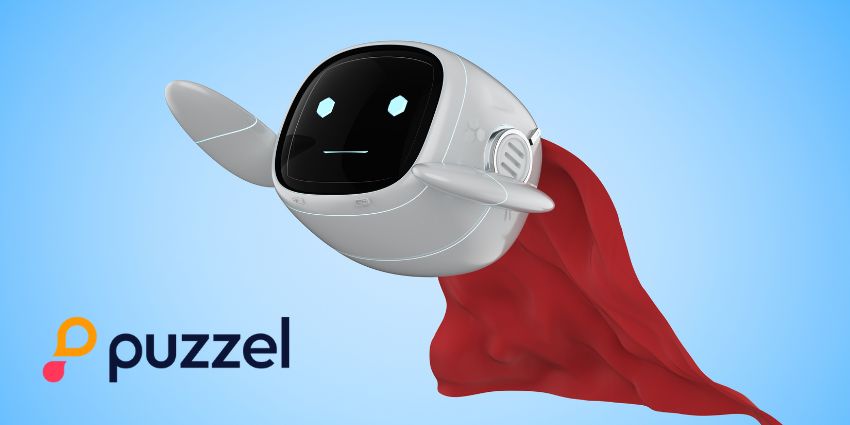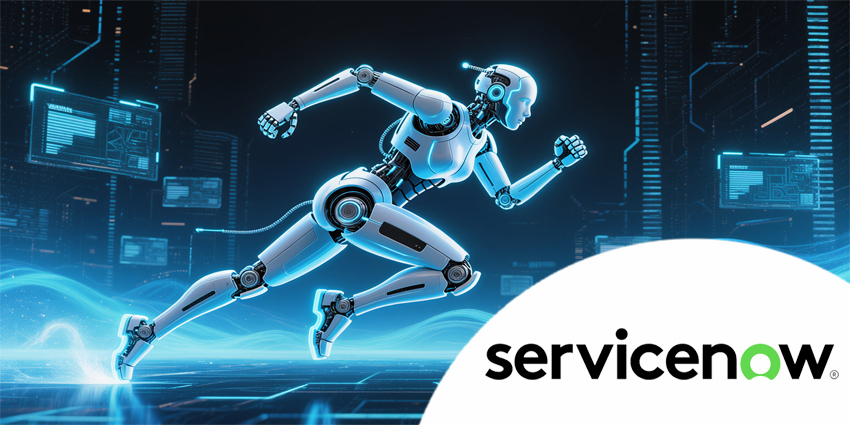Being a frontline agent in 2025 is a tough old gig.
In many ways, agents have never faced more pressure. They’re expected to manage an ever-expanding mix of digital and voice channels, resolve complex issues faster, and maintain empathy throughout every interaction – all while navigating shifting expectations and compliance demands.
In this environment, AI is often framed as the solution: a way to ‘do more with less.’ Yet the most progressive contact centers are discovering that AI’s real potential isn’t in replacing people; it’s in augmenting them.
A new generation of intelligent assistive tools, often referred to as ‘AI co-pilots,’ is helping agents make faster, smarter decisions, reducing cognitive load, and strengthening the very human qualities that customers still value most.
“Our approach is pretty simple,” says Will Penn, Senior Sales Engineer at Puzzel.
“We’ve got tools available to make sure the agent can do the best job possible; not to replace them, but to enhance the human part of the experience.”
The Rise of the Super Agent
Unfortunately, the ‘Super Agent’ being discussed is not some sort of Captain America/James Bond hybrid – as cool as that would be.
No, this is routed less in the fantastical and more in the mold of delivering real, everyday results.
Rather than some questionable serum or a boatload of fancy gadgets, the tool that transforms contact center agents into ‘Super Agents’ is the AI-powered copilot.
By sitting alongside agents, AI co-pilots can analyze conversations and surface contextual guidance in real-time.
Instead of switching between multiple systems or digging through outdated documentation, agents receive live prompts from a connected knowledge base that continuously suggests next best steps.
“Puzzel’s CoPilot is connected to a well-formatted and organized knowledge base,” Penn explains.
“It can constantly suggest those next best steps throughout the call, guiding the agent without them needing to put the customer on hold or go searching across multiple databases.”
The impact is immediate: shorter handling times, fewer errors, and smoother compliance processes.
In highly regulated industries such as insurance or finance, that combination of speed and accuracy is crucial.
For Penn, CoPilot delivers the best of both worlds:
“It’s better for the agent because everything they need is right in front of them. And it’s better for the customer because they get their answers faster. Everyone benefits from it.”
Efficiency with Integrity
Penn’s comments aren’t just the biased championing of his own company’s solution; they’re backed up by facts.
Indeed, early adopters of AI co-pilot tools are reporting measurable improvements.
According to Puzzel, organizations have seen up to eight times faster wrap-ups, four-fold ROI on agent time, and a 23% reduction in average handling time (AHT).
Those numbers matter, but they tell only part of the story. Behind each gain is a reduction in the hidden strain agents face: fewer repetitive tasks, less information overload, and a greater sense of control.
In particular, Penn believes that the removal of “annoying admin” is “huge.
“Consistency improves, accuracy improves, and the agents are freed up to do those more complex tasks that need their full attention.”
By aligning efficiency with integrity, AI co-pilots are helping contact centers achieve something many thought impossible: operational speed and human quality, simultaneously.
Case Study: Insurance Company
While co-pilots might be one of the most renowned AI solutions in the contact center, they are far from the only game in town.
Puzzel recently launched its Live Summary feature, which leverages AI to create editable, CRM-ready call notes in seconds, ensuring accuracy, consistency, and compliance.
A clear example of how this tool encapsulates the potential of the human-AI partnership in the customer service and experience space can be seen from one of their customers, a Nordic legal insurance provider that manages complex, documentation-heavy cases.
Before deploying Puzzel Live Summary, its agents spent significant time writing and reviewing notes after each call, a process that often delayed lawyer preparation and case progression.
With Live Summary automatically capturing and structuring conversation details in seconds, those delays have been drastically reduced.
While the efficiency gains are impressive, Penn stresses that Puzzel’s priority “isn’t just speed; it’s quality.
“With Live Summary, we’re not only creating notes faster, but the quality and consistency of those notes have improved. “
“For this customer, it means better handovers to their lawyers and a smoother experience for their customers.”
By automating these administrative tasks, agents can focus on higher-value interactions, such as listening, clarifying, and showing empathy, rather than typing.
Empathy Through Enablement
Despite all the talk about automation, most customers still prefer human interaction for complex or emotionally charged issues.
Puzzel’s research shows that 75% of customers want to speak to a real person when problems get serious. That preference underscores a simple truth: empathy remains crucial to top-level customer experience.
AI co-pilots support, rather than dilute, that empathy. By taking away the distractions of note-taking, knowledge retrieval, and compliance checking, agents have more bandwidth to actively listen and respond with understanding.
“The co-pilot is there to enhance the human experience,” says Penn
“It gives that guidance throughout the interaction, so the agent can focus on what really matters: the customer in front of them.”
Enterprise Takeaway: What Leaders Should Do Now
For enterprise CX leaders, it is clear from Penn’s insights that AI’s most strategic value lies in empowering people, not sidelining them.
To realize that value, the Puzzel man recommends:
- Auditing the agent experience: Identify where repetitive or manual tasks are limiting empathy and productivity.
- Introducing AI assistants that complement, not complicate: Seamless integration and transparent guidance are key.
- Defining success beyond speed: Quality, accuracy, compliance, and customer sentiment are the real metrics that matter.
As Penn notes, the evolution of AI in the contact center is as much about mindset as it is about technology.
“There does need to be a mental shift,” he says.
“Moving away from thinking AI is there to automate service, and towards thinking of it as a collaborative tool that enhances the human experience.”
While it’s true that AI can bring confusion to the contact center space, the pros far outweigh the cons.
When implemented correctly, the reward isn’t just faster resolutions; it’s happier agents, more trusting customers, and a more resilient CX operation.
You can learn more about how your customer service department can deliver efficiency and empathy by checking out this article.
You can also discover Puzzel’s full suite of solutions and services by visiting the website today.







